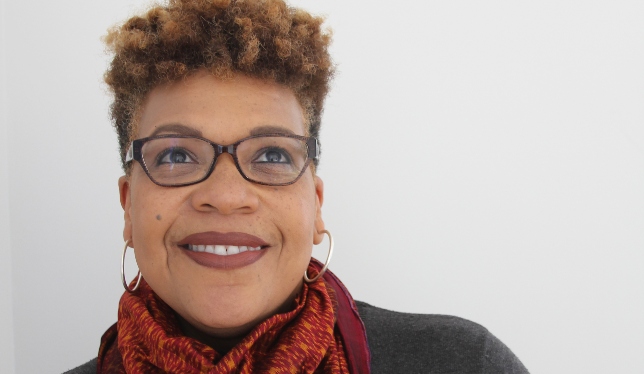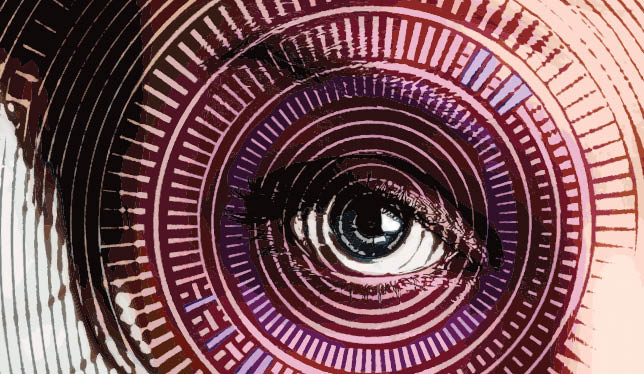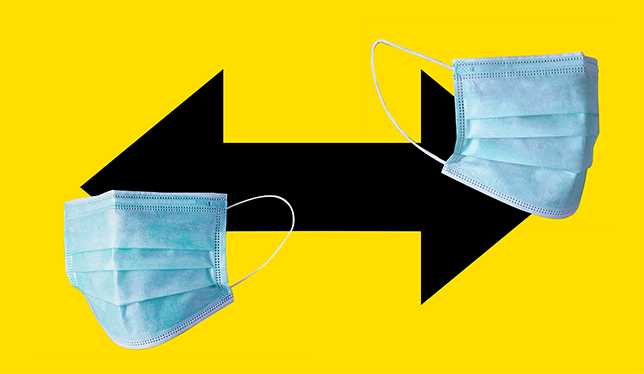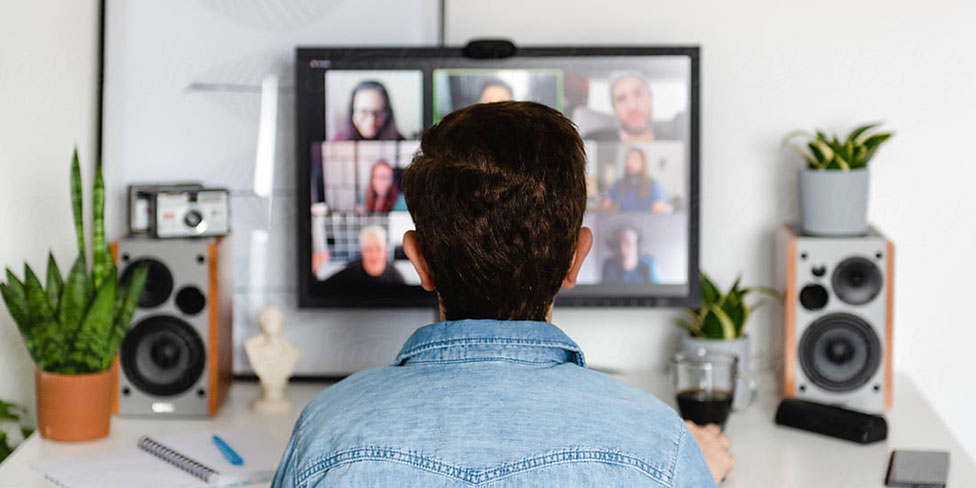Why this professor launched an Instagram Live show about COVID-19 and vulnerable communities
A Q&A with Tanya Sharpe, founder of U of T’s Centre for Research and Innovation for Black Survivors of Homicide Victims, about her timely new discussion series 30@8:30.

Much has been said about COVID-19’s acute impact on African-Americans and other vulnerable populations in the United States, but in Canada, the conversation has largely revolved around how little can be said. With the recent exception of Toronto, the nation has yet to systematically collect the disaggregated data needed to assess whether COVID-19 is affecting some communities more than others, while some politicians have dismissed the importance of such data in the first place.
To address this gap, Tanya Sharpe, founder and director of The Centre for Research and Innovation for Black Survivors of Homicide Victims (The CRIB) and an associate professor of social work at the University of Toronto, decided to initiate a weekly Instagram Live conversation on the pandemic’s particular impact on vulnerable communities. Taking place every Wednesday at 8:30 p.m., the aptly named 30@8:30 series features Dr. Sharpe and a guest in candid and impassioned conversation about COVID-19’s relationship to structural violence, the pandemic’s impact on incarcerated people, trauma and more.
University Affairs: Why did you want to create this series?
Tanya Sharpe: I founded and launched The CRIB, and then poof – COVID-19 hits. We needed to shift our physical presence online. Having a background in mass violence and disaster work, I knew that it was going to be a minute before we probably got out of this pandemic.
The other reason was to be able to help individuals understand that, so often, marginalized, disenfranchised and racialized communities are left out of predominant discourses about how COVID-19 is impacting them. How do we shed light on some of the most vulnerable communities that are overwhelming and disproportionately impacted by COVID-19, both in the U.S. and in Canada? How do we begin to uplift that into the dialogue for the purpose of finding a pathway forward?

UA: What particular challenges are vulnerable communities facing during this pandemic?
Dr. Sharpe: All of our guests have said it in different ways: The disproportionate impact of COVID-19 on Black, racialized, Indigenous and Latino communities, are the same disproportionate structural inequalities that we saw before COVID-19. Because of inequitable access to quality housing, many families, particularly families of colour, don’t have the luxury to go to a separate room or a basement to distance themselves if someone tests positive for COVID-19. That impacts the number of individuals that we will ultimately see test positive for COVID-19 – and perhaps even die from it. The incarcerated, who, again, are disproportionately from Black and brown communities, don’t have the luxury of social distancing in prison. Policies are being created to release [some] individuals, but when they’re released from prison, where do they go in terms of housing? Where do they go in terms of employment opportunities? It’s this vicious cycle.
UA: Your talks often address Canada’s lack of race-based data. How important is it to collect this data?
Dr. Sharpe: In week two of the series, Arjumand Siddiqui, associate professor of epidemiology at U of T, really drove home the point that race-based data is necessary, but it’s not enough. We really have to address the deep-rooted structural inequities that amplify the disparity that we’re seeing. The other thing is, we have to make data accessible to researchers and community agencies to be able to understand it, to analyze it, and then to help make recommendations. Otherwise, we’ll keep on repeating the same cycle.
UA: What role can postsecondary institutions play in responding to the needs of vulnerable populations during the COVID-19 pandemic?
Dr. Sharpe: It’s going to take a collective gathering of frontline workers, medical and mental-health professionals, law enforcement – every single system you can think of that has been impacted by COVID-19 – to come together to be able to really move from a moment in time to a movement. I think research institutions are in a unique position, particularly in Canada with the way the funding is structured, to shepherd the kind of collaborative, innovative initiatives that will allow us to come up with some exciting, impactful solutions, so when the next crisis hits, we are being proactive rather than reactive.
UA: What responsibilities do postsecondary institutions have towards their own vulnerable students and workers?
Dr. Sharpe: Right now, if you don’t have food, clothing and shelter, how can we get that support to you? But as we move through this, how are individuals’ mental and physical health going to be compromised? There’s a wonderful opportunity to be a vessel for mapping out all of the resources and making sure people can get connected to those resources. What if my home is OK, but I have an aunt or an uncle that I’m taking care of – as if often the case for Black and brown communities – that lost their job, so now my paycheque is paying for two homes? We need to think about the social-cultural context in which we exist. I think those are the things that we often miss in the middle of a crisis.
UA: How are people responding to your series?
Dr. Sharpe: People are sending me emails saying “I want more,” “Twenty minutes is just not enough,” “This is amazing.” So I think we’re tapping into something. I realized that folks were getting the data every day: Here’s how many people are infected; here’s how many people have died; here’s what you need to do. With 30@8:30, I wanted to have an informed conversation, but one that was a little bit more relaxed, as if you were sitting in my living room and we’re just having coffee.
UA: What has it been like for you to hold these conversations?
Dr. Sharpe: I founded The CRIB because, for me, this is not a job; I’ve been called to do this work. It’s an interesting, reciprocal exchange. I’m giving a lot, but I feel like I’m also getting a lot. I’m able to not only show up at Dr. Tanya Sharpe, the community-based researcher, director, founder of The CRIB, but I’m also allowed to show up as this Black woman who is also going through this with so many individuals. I’m just grateful for the opportunity.
UA: In your intro video, you speak quite emotionally about your fear that vulnerable communities will continue to be underserved post-COVID-19. What will it take for this pandemic to lead to systemic change, or as you say, for this moment to lead to a movement?
Dr. Sharpe: We have to put proactive policies and practices in place. I was getting emotional because I’ve seen this before: When Hurricane Katrina hit in New Orleans; when we talk about Indigenous populations that still don’t have access to drinking water. I’ve seen it over and over again. Here, we have a global pandemic where all people are affected, but there are some that are affected unequally. And so, in order for us to make sure that we don’t see this happen again, there have to be long-term policy and practice solutions. There’s just no way around that.
This interview has been condensed and edited for clarity.
Featured Jobs
- Veterinary Medicine - Faculty Position (Large Animal Internal Medicine) University of Saskatchewan
- Business – Lecturer or Assistant Professor, 2-year term (Strategic Management) McMaster University
- Psychology - Assistant Professor (Speech-Language Pathology)University of Victoria
- Canada Excellence Research Chair in Computational Social Science, AI, and Democracy (Associate or Full Professor)McGill University













Post a comment
University Affairs moderates all comments according to the following guidelines. If approved, comments generally appear within one business day. We may republish particularly insightful remarks in our print edition or elsewhere.